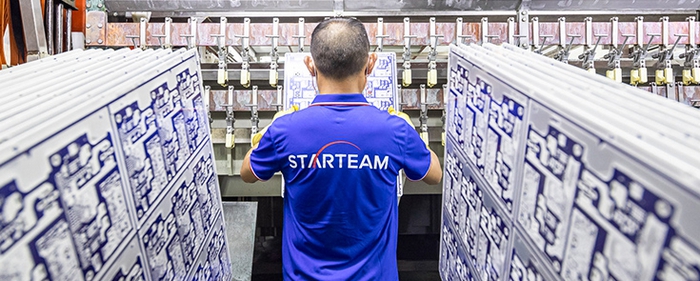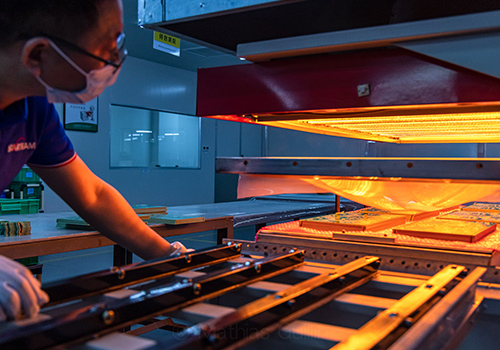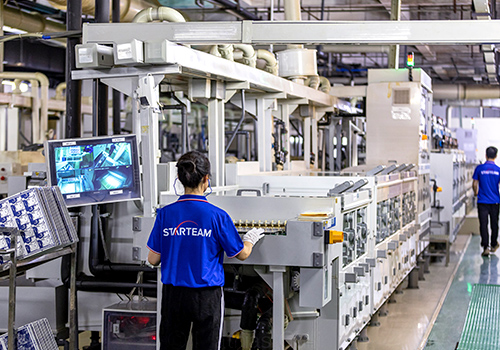
Unlocking the Future of PCB: Bridge the Skills Gap and Nurture Next-Gen Talent
The key questions arise: Where and how should the PCB industry source the right talent? Moreover, how can it maintain its competitive edge while addressing this skills gap?
Decoding New Talent

Manufacturing jobs, particularly in the PCB sector, are often viewed as less exciting by the younger generation despite offering competitive salaries. This digitally proficient group finds it hard to translate this to a factory environment, which discourages them from entering the industry. Manufacturers also find it challenging to attract new talent, leading to a belief of talent shortage.
In recent years, the pandemic has sparked a massive shift towards online platforms and businesses, giving rise to many digital and tech-related job opportunities. As a result, people who lost their jobs or faced dwindling career prospects needed to adapt rapidly. Countless individuals have stepped out of their comfort zones, developing new skills or completely changing their professional fields. Despite no prior experience or knowledge, nurses transitioning into IT careers are a perfect example. This became possible thanks to the number of reskilling opportunities available.
The younger generation may feel disheartened by the lack of opportunities to enter the PCB manufacturing industry, but there is always the possibility of adapting and embracing change. Enthusiasm, determination, and persistence in learning can empower a new career journey. The PCB industry is brimming with potential, and its prominence will only grow. So, what are the best approaches for individuals without prior experience or knowledge to kickstart a career change and direction in this dynamic sector?
Bridging the Gap: Reskilling and Upskilling

Although the PCB industry is highly technical in nature, it also offers a diverse range of opportunities and areas. This fact may initially appear as a setback to newcomers; however, with the myriad of available learning resources, transitioning into this sector has never been more accessible. Recruitment strategies focusing on reskilling and upskilling initiatives are essential for addressing the skills gap.
Reskilling refers to acquiring new skills aligned with evolving industry trends and demands. In the context of the PCB industry, this may involve equipping employees with knowledge related to AI applications or IoT usage in PCB manufacturing, allowing them to adapt to the industry's developing landscape.
Upskilling, on the other hand, is the process of enhancing existing skill sets to meet the evolving industry standards. These could include further training in areas such as manipulating modern circuitry, programming technological tools, or advanced engineering skills applicable to the current industry needs.
The industry can tap into several recruitment tactics, such as targeting key demographics like tech-savvy millennials, adapting to their recruitment preferences, and offering competitive compensation packages to attract the required workforce.
Rebuilding the Talent Pipeline

Creating a robust pipeline of skilled talent is fundamental to the growth and sustainability of the PCB industry. Therefore, industry experts must proactively collaborate to ensure a steady influx of fresh, trainable talent into the industry.
- Partnerships with Educational Institutions: Collaborating with universities and technical institutes will enable the development of academic programs closely aligned with industry expectations to facilitate a smooth transition for newcomers entering the workforce.
- Promoting the Industry's Appeal: PCBs hold a central role in electronics' functionality, yet their significance is often overshadowed by more prominent tech fields like Cybersecurity, Cloud, and AI. Revamping the image of the PCB industry with a modern appeal and promoting exciting career prospects will attract a new generation of talent.
- Apprenticeship Programs: Offering apprenticeship programs introduces newcomers to the field while equipping them with the skills they need to grow and prosper in the industry, fostering a future-ready, skilled workforce.
It is time for the industry to tackle the skills head-one and reinforce the pipeline of future talents with these strategies.
Nurturing Tomorrow's Leaders

At STARTEAM GLOBAL, a team's strength lies in its diversity. People from different age groups and backgrounds come together in our company to bring unique ideas and skills. We learn as much from them as they do from us.
Our promise is to provide our team with constant opportunities to develop and grow. We aim to shape their careers and, at the same time, help them grow personally. Our dedication to this is apparent in all our locations, where we offer ongoing training for skill advancement.
At our factory in China, we have an annual training plan designed to meet the specific needs of each department. We offer Statistical Process Control training for our Production Engineering team and Six Sigma training across various departments. Our Quality Assurance, Manufacturing Engineering, and Production Department teams undergo specialised training on Failure Mode, Effects, and Analysis. Additionally, our Quality Assurance team receives training to become Certified Information Systems Security Professionals.
However, our commitment to nurturing talent continues beyond our factory wall. In collaboration with local Chambers of Commerce and organisations in Hong Kong and Germany, we offer two-year Dual System training programmes. Here, selected candidates get real-world experience across various functional areas, like IT, Logistics, Coordination, Sustainability and more while continuing their academic studies. This unique blend provides hands-on experience, helping the trainees find their passion and niche in the industry.
At STARTEAM GLOBAL, fostering personal growth and development is the key to keeping the PCB industry thriving and more vibrant than ever. By inspiring one another, we continue to make a lasting impact in our sector. We do not simply build teams; we shape futures.


